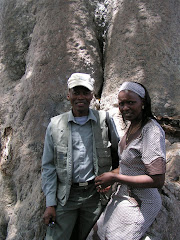WHAT IS "CHILD LABOR"?
Child labour is work that is unlawful (e.g. in breach of the Employment Act), exploitative or harmful to the child’s health, welfare and development. The Worst Forms of Child Labour Convention spells out what are defined as the worst forms of child labour – commercial sexual exploitation, trafficking, hazardous work (to be defined by each country) and children used by adults to commit crimes.
The work may be detrimental to the child physically, mentally, morally, or blocking the child’s access to education. Work is not necessarily harmful to children. It can be beneficial to children.An ILO document also acknowledges that “the absence of work …can condemn the child to a variety of social, moral and health risks”.
Article 38 of the African Charter on the Rights and Welfare of the Child provides that children have a responsibility to assist their families and communities in case of need and in the process learn skills.Child labour in BotswanaChild labour exists in Botswana. Worst forms of child labour such as commercial sexual exploitation of children, children used by adults to commit crimes and cases of very hazardous work are found in the country. Indications are that the numbers of children involved in child labour and especially the worst forms are relatively low, especially if compared with some other developing countries.
In the villages some children live by themselves, often under the supervision of an elder sibling who himself or herself attends school. The care of the household then becomes the responsibility of the children, regardless of age. During weekends, school holidays and public holidays the children relocate to the lands or cattle-posts where they become actively involved in cattle or goat herding in the case of boys and household chores, as well as firewood and water collection for girls.
On farms where adults are employed as cattle-herders, the children of these workers often take part in herding small-stock or collecting firewood and drawing water, both for their own households and for those of their parents’ employers. Where the work is done for the employers’ families, the children are often not paid. Some of the farms are far from schools or other facilities and the children are thus unable to get access to education.Retail and wholesale industry. Many of them work in family businesses, such as a tuck shops (semausu) or shebeens, without pay.
More children are involved in helping unpaid, in family businesses (excluding subsistence agriculture) than in other work for pay in cash or kind. The work children do in these businesses vary from offloading stock, to packing items on shelves, pricing, selling, cleaning and general maintenance of the business premises. This is done to avoid employing people to do these jobs and thus increasing the expenses for the business. Where the children are so involved they are not paid or where there is any reward it is normally in kind rather than cash.Domestic work. Indications are that children from rural areas, who have dropped out of school, mainly girls, often become involved in domestic work.
The Employment Act of 1973 is the principal law governing employment-related matters in Botswana. It protects children against exploitation and hazardous employment, defined as any work that is dangerous to the child’s health, development and morals. The Act defines a child as a person under the age of 15 years (i.e. up to 14), and a young person as a person who has attained the age of 15 years but is under the age of 18 years, i.e. up to 17 years.
The Employment Act Prohibits employment of children under 15 years, or children under the minimum school-leaving age.Sets strict regulations for the employment of children between 15 and 18 years.Prohibits employment if the work that is performed is inappropriate for the age of the child or if the work places at risk the child’s well-being, education, physical or mental health, or spiritual, moral or social development. Allows employment of a child who has attained the age of 14 years and is not attending school to do light work that is not harmful to his or her health and development by a member of his or her family for not more than five hours a day between 6.00 am and 4.00 p.m. Such work must be of a nature approved by the Commissioner of Labour.
Employment Act allows children of 15 years and above to be employed by non-family members. Where such employment is other than of a domestic character in connection with which suitable accommodation is provided, the child must readily be able to return each night to the house of his or her parent or guardian. Prohibits children and young persons to work underground.§§ Prohibits children and young persons to work at night. Prohibits children§ less than 18 years to work more than six hours a day or 30 hours a week. § Prohibits children from lifting, carrying or moving anything heavy and likely to endanger his/her physical development during the course of employment.
CHILD WORK
Child work is any work done by a child that is not detrimental to his or her health, welfare and education. This includes economic activity and non-economic work activity including reasonable household chores.Reasonable household chores and fetching water and fire wood can be beneficial to children. It can teach them skills and impart a sense of responsibility that will help in ensuring that today’s’ young people become positive and able adults in the future.When household chores take too long that children miss school or do not have time for homework, then there is need for government intervention.
Subscribe to:
Post Comments (Atom)











No comments:
Post a Comment